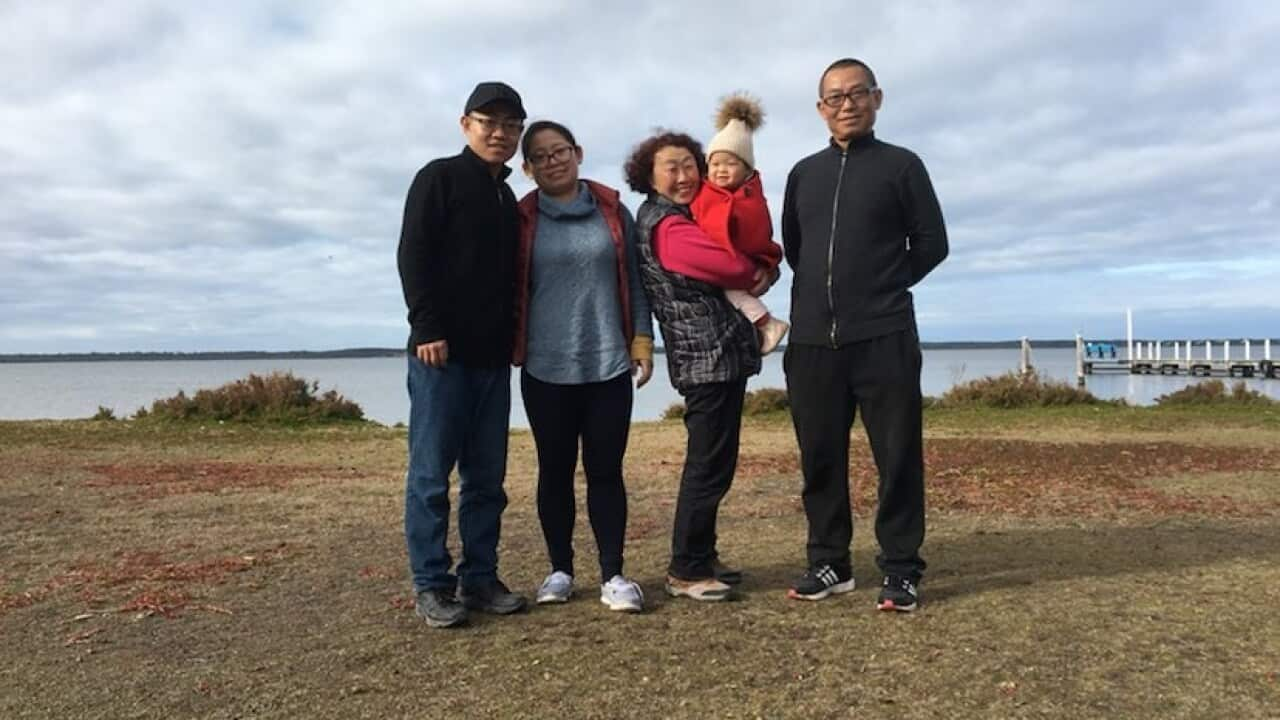The last time Rajshree Patel and her son Nevaan were together in Australia was July 2019.
That was just before the toddler was taken to India with his grandparents while she finished her Bachelor of Nursing.
More than 18 months later, the three-year-old and his mother remain separated by closed borders.
"I feel like someone removed my body part," Ms Patel told SBS News. Rajshree, 31, came to Australia eight years ago, became a citizen in 2018 and for the last six months has been working at a COVID-19 testing clinic in Sydney.
Rajshree, 31, came to Australia eight years ago, became a citizen in 2018 and for the last six months has been working at a COVID-19 testing clinic in Sydney.

Ms Patel and her son are both Australian citizens but remain apart. Source: Supplied/Rajshree Patel
The single mother, who also has a chronic illness, has applied three times for a travel exemption for her mother and father to bring her son to Australia, but was knocked back.
Nevaan was born in Australia and is an Australian citizen but is not old enough to fly alone. But under the country's COVID-19 travel ban, only the 'immediate family' of an Australian citizen or permanent resident is allowed to enter the country. The rules define 'immediate family' as a spouse, de facto partner, dependent child, or legal guardian. Parents don't qualify.
The rules define 'immediate family' as a spouse, de facto partner, dependent child, or legal guardian. Parents don't qualify.

Ms Patel's son Nevaan is in India with her parents. Source: Supplied/Rajshree Patel
"It's like taking my heart away from me," Ms Patel said.
On her most recent application, her mother was approved for travel to Australia, but not her father. Ms Patel says she doesn't want to separate her parents.
It's like taking my heart away from me. - Rajshree Patel, Mother
She has also considered flying to India but says she doesn't want to take the risk of joining the many other thousands of Australians who can't get back and remain stranded overseas.
"If I go back, who's going to pay rent here? If I'm stuck there for six months, four months, I have to sell everything, I'll lose my job," she said.
Family pleas rejected
Many families are in the same position and their campaign to change the 'immediate family' rule attracted more than 11,000 signatures on a parliamentary petition. That was .
Tuesday marked 90 days since the petition closed, the date by which the Home Affairs Minister Peter Dutton is asked to respond, but it is not compelled to. When contacted by SBS News, a Department of Home Affairs spokesperson told SBS News the government was standing firm on the rule.
When contacted by SBS News, a Department of Home Affairs spokesperson told SBS News the government was standing firm on the rule.

A parliamentary petition to change the rules attracted more than 11,000 signatures. Source: Parents are Immediate Family campaign
"The government acknowledges the difficulties with respect to extended families seeking to reunite, however, there are currently no plans to include parents in the definition of immediate family for the purpose of travel exemptions," they said.
The department provided Mr Dutton's response to the petitions committee last week, the spokesperson said.
SBS News understands the response will be formally presented to the House of Representatives on 22 February.
'Migrant communities need to be heard'
Roya Salamati, 42, is one of those campaigning for change. Her father died from COVID-19 last year in Iran.
The Australian citizen has applied for a travel exemption for her 67-year-old mother, who is now on her own, to come to Australia, but she was rejected twice. "This is very important for migrant communities to be heard, and they suffer a lot about this separation," Ms Salamati said.
"This is very important for migrant communities to be heard, and they suffer a lot about this separation," Ms Salamati said.

Roya Salamati wants to bring her widowed mum to Australia. Source: Supplied/Roya Salamati
"Australia has strict border measures in place to protect the health of the Australian community," the Department of Home Affairs states on its website.
But Labor MP Julian Hill says the situation is not good enough. "If the Prime Minister had shown leadership last year and done his job properly and taken responsibility for quarantine then we would not be in this mess, and we would not see these families separated so cruelly for so long," he said.
"If the Prime Minister had shown leadership last year and done his job properly and taken responsibility for quarantine then we would not be in this mess, and we would not see these families separated so cruelly for so long," he said.

Nevaan remains in India. Source: Supplied/Rajshree Patel
Mr Patel, Ms Salamati, and the many others lobbying for change say they will continue the fight.











